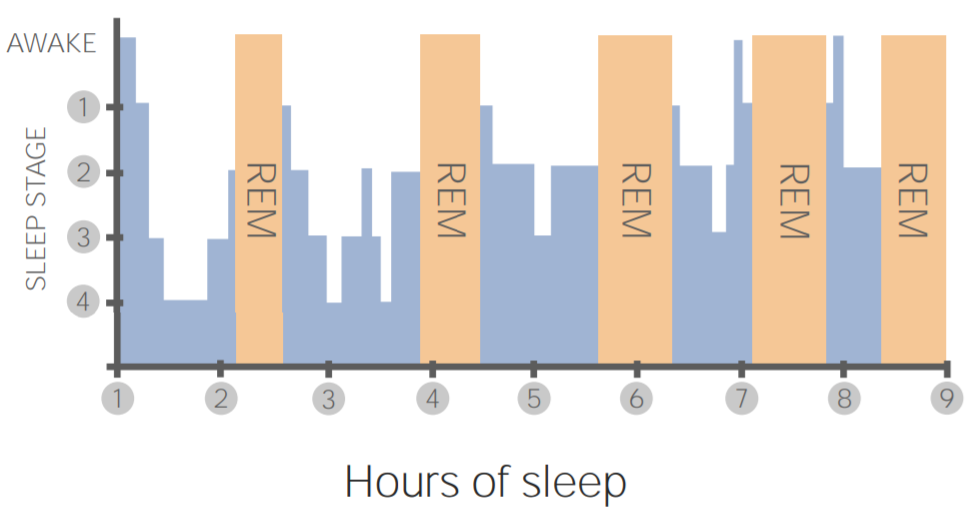Playlist
Show Playlist
Hide Playlist
Introduction esp. Alertness – Consciousness (PSY, BIO)
-
Slides State of Consciousness.pdf
-
Download Lecture Overview
00:01 Okay. 00:02 Let’s move on to state of consciousness. 00:04 Now, how does this apply to cognition? Well, states of consciousness are related to cognition because it is during this cognitive state and state of consciousness that we do a lot of our thinking. 00:18 So conscious is defined as the awareness that we have of ourselves, our internal states, and the environment. 00:24 So, being aware of what is around you, being aware of yourself, being aware of your capabilities, and being aware of your internal state, are you excited, are you angry, are you at peace. 00:34 So consciousness is needed to complete novel and complex tasks. 00:38 So if you’re not consciously aware, it’s going to be really hard to do things, to do tasks, especially if they’re different and require you to think. 00:47 So practiced and simple tasks may be completed with little conscious awareness. 00:52 So for example driving home. 00:55 How many times have you done this, where you’re driving home, and at least in your mind you think you’re driving home, but you’re supposed to go to the grocery store to pick up a bag of milk? Your wife calls you on the way home saying, “Can you get some milk?” You’re like, “Sure, no problem.” And as you’re driving, you realized that you just drove straight home. 01:11 It’s because that simple practice task required very little conscious awareness, a lot of very little conscious input, and so it becomes an automatic behavior, right? And then you go home, you get yelled at, you turn around, and you go get the milk. 01:24 Now, subconscious cues may influence us without entering our consciousness, so first impressions for example. 01:31 So when you see somebody for the first time, you -- and then your subconscious level actually accrue and save what you believe to be your first impression and that actually didn’t go through your consciousness. 01:42 You didn’t actively think about that first impression. 01:46 It just happens. 01:47 You can then later on consciously readdress or revisit that first impression, but the actual first impression happens subconsciously. 01:58 Okay. Let’s talk about alertness. 01:59 Now, alertness and arousal involve the ability to remain attentive to what’s going on. 02:04 And, again, throughout the different modules, we’ve talked -- we’ve used that term “arousal” before, and we’re referring to your brain being active or alert. 02:12 And alertness or arousal is a direct measure of the sort of level of function that you have at that moment. 02:20 Now, back to our injuries, if you have ADD or narcolepsy or depression, this actually impairs the ability to remain alert and as a result, impairs your cognitive ability. 02:31 So you need to be alert and arouse in order to do what you need to do, okay? So it’s impossible to maintain alertness indefinitely, which is why over our 24-hour cycle, this varies. 02:41 There are periods of peak performance, right? So when you wake up at three in the morning, are you really alert? No. 02:48 Forget about middle of the night. 02:48 Forget about middle of the night. 02:49 How about even at like 10:30 PM? You’ve gotten home. You’ve had your dinner. You’re watching TV. You’re relaxing. 02:54 Are you really alert? And we all know our periods of activity and inactivity, and when we’re the most alert and when we’re not, and, you know, some people are morning people and they’re very, very efficient and alert in the morning, and some people are night owls and they’re really, really apt at doing their work later on in the day. 03:12 So this process of alertness is mediated by a brain structure called the reticular formation. 03:18 So, this is in the brainstem and it’s also known as the RAS, the reticular activating system. 03:25 It’s easy to remember because we’re talking about arousal, alertness, and activity, and this is called the reticular activating system.
About the Lecture
The lecture Introduction esp. Alertness – Consciousness (PSY, BIO) by Tarry Ahuja, PhD is from the course Making Sense of the Environment.
Included Quiz Questions
Which of the following requires the highest level of consciousness?
- To assemble a new table
- To fall asleep
- To drive a car
- To get dressed
- To make a sandwich
Which term is described by "the awareness we have of ourselves, our internal state, and the environment"?
- Consciousness
- Alertness
- Arousal
- Subconsciousness
- Cognition
Which factor would be unrelated to a decrease in alertness?
- Caffeine
- Depression
- Head injury
- Sleep deprivation
- Soothing music
When injured, which of the following has the most impact on alertness and arousal?
- Brainstem
- Occipital lobe
- Spinal cord
- Hippocampus
- Pituitary gland
Customer reviews
5,0 of 5 stars
| 5 Stars |
|
5 |
| 4 Stars |
|
0 |
| 3 Stars |
|
0 |
| 2 Stars |
|
0 |
| 1 Star |
|
0 |




